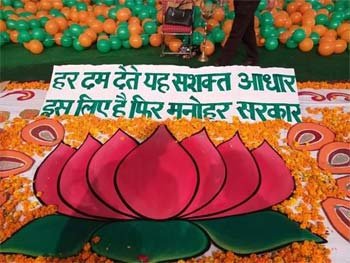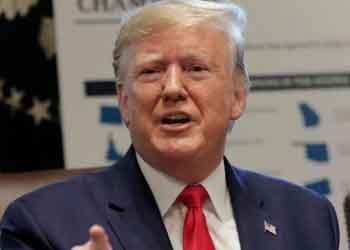Delhi,,
“What the hell is going on in this country,” commented an exasperated Supreme Court last week as it expressed its indignation over the lack of government’s seriousness in bringing to book alleged black money offenders like Hasan Ali Khan. The Supreme Court was hearing the petition filed by Ram Jethmalani, Subhash Kashyap and KPS Gill.
A Bench comprising Justices B. Sudershan Reddy and S.S. Nijjar, warned the Government that it would be forced to monitor investigations into black money if the authorities kept viewing it as a tax evasion issue and failed to pursue the source of the illegal money stashed abroad.
The Bench further asked Solicitor General Subramaniam why Hasan Ali could not be taken into custody for interrogation and whether Government would like custodial interrogation under the Court’s supervision.
“What the Hell!” is certainly not a phrase one would normally expect from a Supreme Court Bench. But Government’s behaviour these days has been so abnormal, that if you go round the country and note the language you hear everywhere, it reflects nothing other than a sense of utter disgust over the manner in which Government has been conducting itself. The comments in the media are no different.
The news on Friday for instance about the Supreme Court striking down the appointment of P.J. Thomas as Chief Vigilance Commissioner carried in a leading Daily of the capital the heading:
“SC WAVED RED FLAGS BUT GOVT. HAD EYES WIDE SHUT”
****
For several months now, one word that has been reverberating in every nook and corner of the country is the word ‘CORRUPTION’.
I have had to privilege of being active in all the General Elections in Independent India, right from the First one in 1952 upto the Fifteenth in 2009. And in almost all of these, opposition parties have attempted to make corruption a key issue. They have really succeeded on a national level only once, that is, in 1989, when on the Bofors Guns issue, the entire opposition climaxed their parliamentary protest with all Lok Sabha members belonging to Opposition Parties resigning their seats. In this case, the banner of revolt against corruption was raised not only by opposition leaders, but from within the Congress Party by Shri Vishwanath Pratap Singh.
It is, therefore, that in one of my interviews last week (Indian Express, New Delhi, Dated March 4, 2011), I have remarked that the Congress should consider itself lucky that there is no V.P. Singh in its ranks today.
It is however the nation’s good fortune that there is today a Supreme Court extremely conscientious about its high constitutional duties. In fact the first major assault on this issue of corruption also was made by the Supreme Court way back in 1998 when in the Vineet Narain case Justices J.S. Verma CJI, S.P. Bharucha and S.C. Sen delivered a historic judgement.
It is by virtue of this judgement that the Central Vigilance Commissioner has become a statutory body charged with the responsibility of superintendence over the CBI’s functioning. It is again because of this S.C. judgement that the appointment of the Chief Vigilance Commissioner, which till then was within the authority of the executive government was made subject to selection by a Committee comprising the Prime Minister, Home Minister and the Leader of the Opposition in the Lok Sabha.
I understand that after sensing the Supreme Court’s displeasure over the nomination of P.J. Thomas as CVC, an attempt was made by some in government to make Thomas quit on his own. He however refused to do so. In New Delhi’s political circles it is said that a senior Minister advised him not to yield. Former Chief Justice Verma has written an article yesterday (The Indian Express) bearing the caption “Why I had no doubt the court would strike it down.” Shri J.S Verma says :
“The office of the Central Vigilance Commissioner is most important, in its task of overseeing the functioning of people in public office and tackling corruption wherever it is found. It is the crucial body entrusted with combating corruption. In that context, this turn of events — the Supreme Court having to strike down P.J. Thomas’s appointment — is indeed tragic.”
Chief Justice Verma’s decision to involve the opposition in an important appointment, which till then was the exclusive preserve of the ruling party set a precedent. When Parliament later enacted the Right to Information Act, the Leader of Opposition, Lok Sabha also was included in the Selection Panel.
India is the largest democracy of the world. Little wonder that Art. 324, dealing with the appointment, powers etc. of the Election Commissioner is deemed a very important provision.
Art. 324 (2) says:
The Election Commission shall consist of the Chief Election Commissioner and such number of other Election Commissioners, if any, as the President may from time to time fix and the appointment of the Chief Election Commissioner and other Election Commissioners shall, subject to any law made in that behalf by Parliament, be made by the President.
It would be very appropriate and a step towards strengthening democracy if the Supreme Court’s 1998 decision followed in the RTI Act is incorporated in case of the Election Commission also.
The phrasing of Art 324 (2) shows that this would not need any Constitution amendment. It would be achieved by an ordinary enactment. The earlier it is done the better.
















